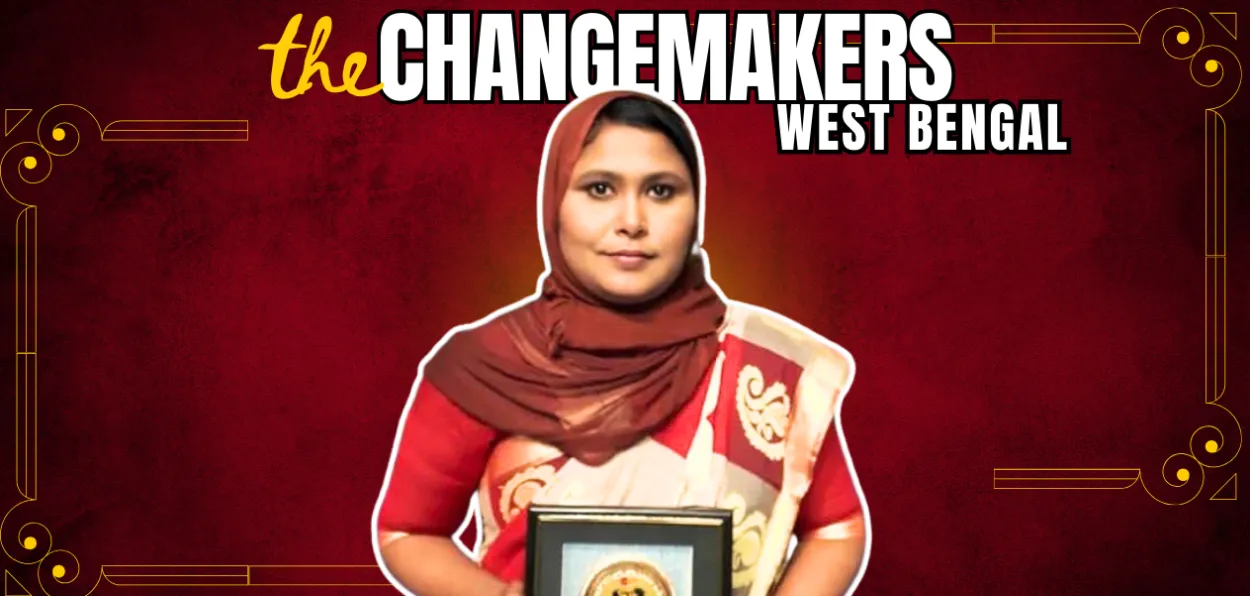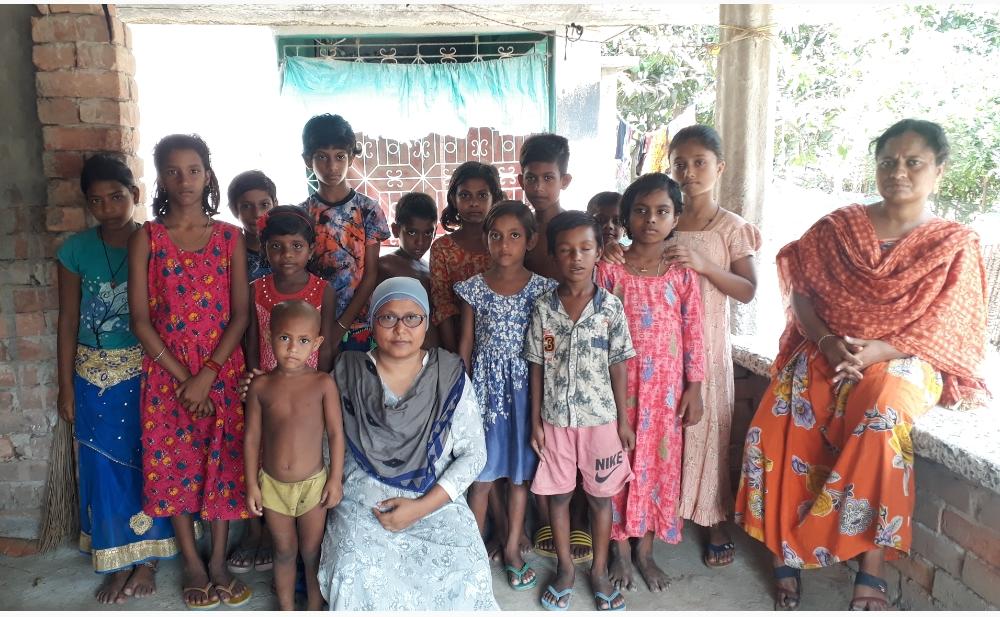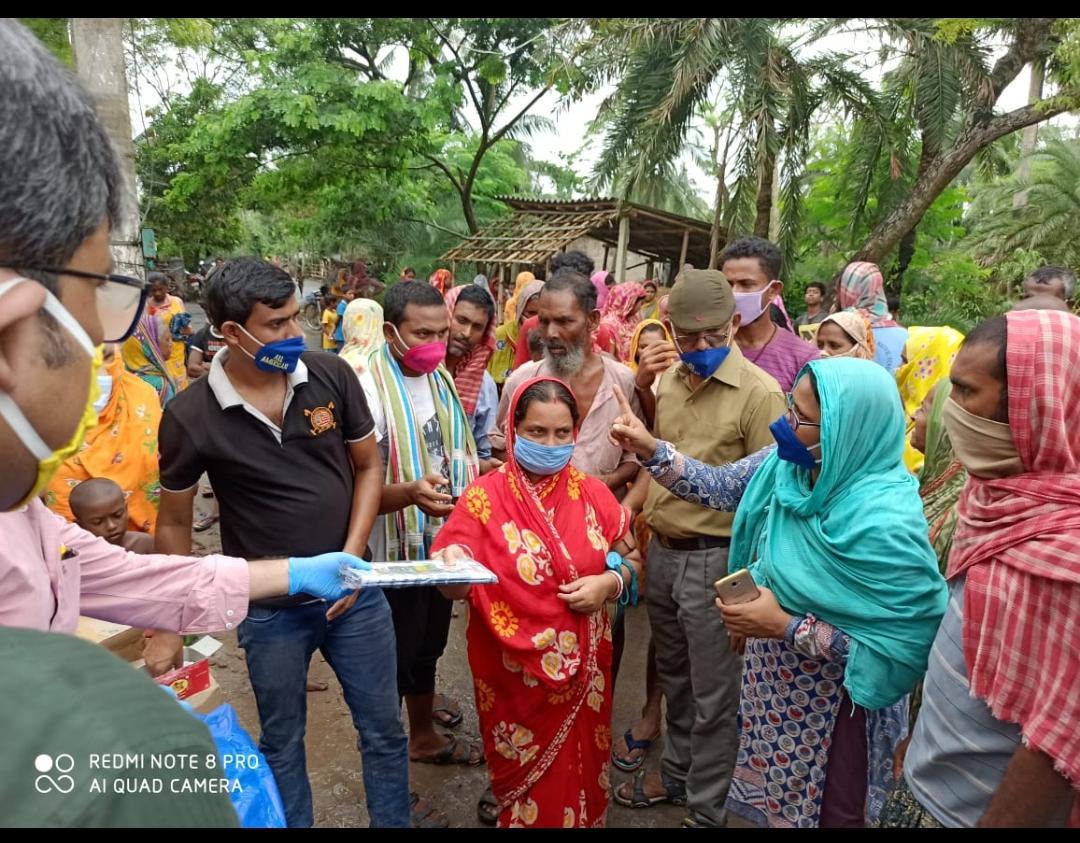
Debkishore Chakraborty
Halima Khatun’s life is a testament to the quiet but unyielding strength of women who dare to stand against the tide.
Born in North Mamudpur, a small village in Hingalganj in the Sundarbans, she grew up in poverty. Her parents rolled bidis to keep the household running, their fingers roughened by endless and yet the low-paying labour.
In a place where girls were rarely sent to school, much less to a university, her parents’ insistence on her education was extraordinary. That decision not only transformed her life but also went on to spark a movement.
.jpeg) Women waiting for Halima Khatun
Women waiting for Halima Khatun
Halima became the first woman from her village to get admission in Calcutta University. Her journey was anything but easy. Villagers criticised her for leaving home for Kolkata. “When I left for university, it was almost like rebellion,” she recalls.
“The criticism was harsh, but inevitable. I was the first girl to do it.” Yet, she did not flinch. The resistance only deepened her resolve. Even as a student, she began to notice the struggles of women around her, their silence, their helplessness, their lack of access to the most basic rights.
She stood beside women from fishing communities in the Sundarbans, listening to them, amplifying their concerns, and slowly helping them discover the strength to speak for themselves. What began as small acts of solidarity would soon grow into a movement that challenged generations of patriarchy.
.jpeg) Halima Khatun with children
Halima Khatun with children
In 2009, an opportunity came when she joined ActionAid India. Working in the backward areas of North 24 Parganas, she saw women trapped in poverty and fear.
Most lacked voter IDs and ration cards. Girls rarely went to school. Women were silenced by pressure from powerful men who upheld patriarchal traditions.
Halima and her colleagues began organising meetings and training sessions, connecting women from one village to another until a chain of solidarity was formed. Slowly but steadily, change began to take root.
This effort crystallised into the Hasnabad-Hingalganj Muslim Mahila Sangh, a platform that today unites more than two thousand women across fifteen village panchayats.
 Halima Khatun fighting for the rights of children, especially girls
Halima Khatun fighting for the rights of children, especially girls
Together, they have filed over two hundred RTI applications, resulting in scholarships for 550 girls. They have stopped more than a hundred child marriages and rescued many young girls from trafficking.
They also work tirelessly for the rights of bidi workers, who form a large part of the local population. Thanks to their efforts, over seven hundred bidi workers now have proper identification.
Halima’s fight against child marriage is perhaps her most visible act of defiance. Poverty often forces families to marry off daughters in the hope of securing them a better life, but the reality is usually far harsher.
She has walked into weddings with police by her side, halting the rituals before they could begin. Her fearless interventions have earned her the nickname “Dabang,” the fearless enforcer who stands against injustice no matter how deeply entrenched.
.jpeg) Halima Khatun wading through stangnant waters to reach people in Sunderbans
Halima Khatun wading through stangnant waters to reach people in Sunderbans
Behind her courage lies the weight of frustration. She is the first woman from Hingalganj to hold a Master’s degree, yet she admits with some weariness that the flood-prone delta remains mired in poverty and illiteracy.
“I have been trying for so many years,” she says. “We work collectively, throwing ourselves into action. But the problems are overwhelming. Within our limited means, we fight as much as we can. I’ve never learned to stop. Nor to accept defeat.”
Her activism has not been without danger to her life. Hardliners once branded her a corrupting influence, accusing her of provoking women to demand their rights.

Halima Khatun during the COVID-19 lockdown
She received threats of violence, even warnings of sexual assault. But she stood her ground. Over time, even those who opposed her began to change. “They see me on television shows now, and they read about our work in the newspapers. They hear stories of change, and slowly their views are shifting,” she claims.
Today, Halima balances her role as a mother and wife with her identity as an activist. Her dream now is to expand the struggle beyond her own district. She is working to build a wider platform, the Paschim Banga Muslim Mahila Sangathan, to unite women across West Bengal.
What once seemed impossible has become reality: women who once lived in silence are now standing up, raising their voices, and demanding dignity.
ALSO READ: Hafizur Rahman sold his land, crops to empower women
Halima’s journey is the story of resistance against silence, of courage that refuses to bend before fear, and of change that begins with a single act of defiance. She proves that even in the remotest corners of India, one woman’s determination can shift the course of many lives.
